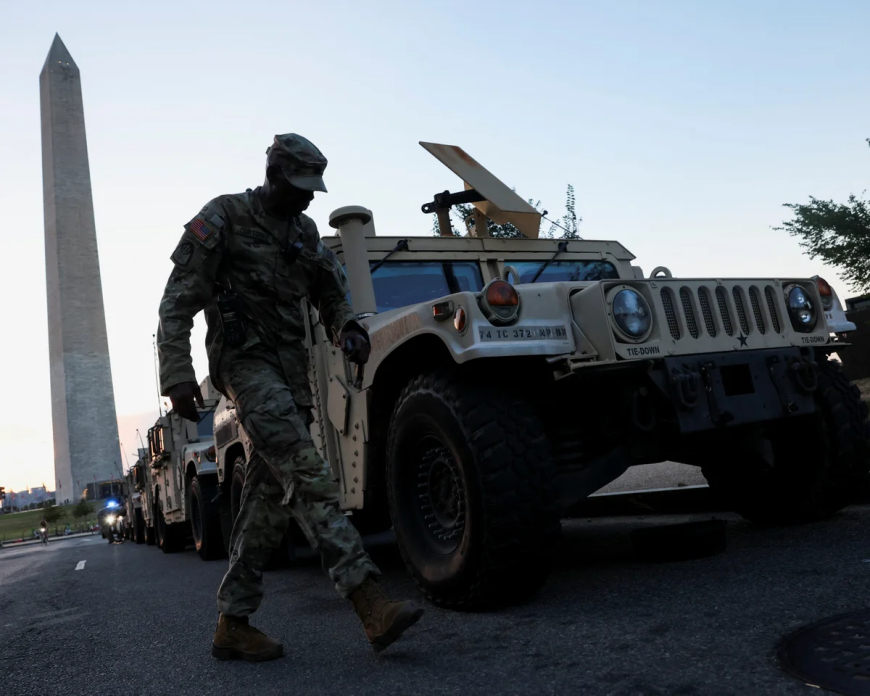Beyond 30 Days: Trump’s Push to Extend Federal Control Over D.C. Police Sparks Legal and Political Storm
President Trump seeks congressional approval to extend federal control over D.C. police beyond 30 days, raising constitutional and political questions about local governance and federal authority.

Published: August 15, 2025
WASHINGTON, D.C. — President Donald Trump’s initiative to secure congressional approval to extend federal control over Washington, D.C.’s police forces beyond the statutory 30-day limit has ignited a fierce debate over constitutional authority, local governance, and democratic norms. The proposal has prompted concerns among lawmakers, legal scholars, and municipal officials about the implications of federal overreach and the precedent it may set.
Background: Federal Control Limits and the 30-Day Statute
Under existing law, federal authority over D.C.’s Metropolitan Police Department is strictly limited to 30 days in emergency circumstances. The measure, originally designed to provide temporary support during crises, has historically been used sparingly.
Trump’s proposal aims to prolong federal oversight citing crime reduction near federal buildings, heightened threats to government infrastructure, and the strategic deployment of National Guard units. White House officials argue that the extension is necessary to maintain public safety in the nation’s capital, especially in light of rising political demonstrations and civil unrest.
Constitutional Questions and Legal Challenges
Legal experts have raised serious concerns about the constitutionality of extending federal control beyond the 30-day limit.
“Granting indefinite federal authority over a municipal police force risks undermining the principle of local governance,” says Professor Elaine Harper, constitutional law scholar at Georgetown University. “It challenges the balance of power between the federal government and the District of Columbia enshrined in the Home Rule Act.”
Critics also question whether the President can invoke emergency powers to bypass statutory limits without explicit congressional approval. Pending legislation would need to address these constitutional concerns while providing a legal framework for continued federal involvement.
Municipal Pushback and Political Fallout
Local leaders in Washington, D.C., including Mayor Anthony Williams and the D.C. Council, have voiced strong opposition to Trump’s initiative. They argue that federal overreach threatens local democracy and diminishes municipal authority.
“The residents of D.C. elect local officials to manage policing,” said Council Chairperson Rachel Evans. “Federal control beyond 30 days erodes accountability and undermines the trust between the community and law enforcement.”
Republican lawmakers supporting the extension emphasize public safety and continuity of operations, citing statistics that show a temporary decrease in violent incidents during periods of federal oversight. The debate has quickly become a flashpoint in national politics, framing larger questions about executive power, emergency declarations, and federal-city relations.
Potential Precedent and Broader Implications
Analysts warn that approval of an extended federal police mandate could set a precedent for future federal intervention in local governance across the United States. It could impact cities experiencing political unrest or high-profile security events, potentially reshaping the relationship between municipal authorities and the federal government.
International observers have also taken note, with concerns that such a move could signal erosion of democratic norms in the U.S., affecting global perceptions of American governance.
Looking Ahead: Legislative Path and Public Response
Trump’s administration is actively lobbying Congress to pass legislation allowing federal control beyond 30 days. Congressional hearings are expected in the coming weeks, with intense scrutiny from both Democrats and Republicans. Legal challenges from the District of Columbia and civil liberties groups are anticipated, which may ultimately lead the matter to the courts.
Meanwhile, public opinion remains deeply divided. Supporters argue the move ensures safety and continuity of law enforcement, while critics warn of executive overreach and diminished local accountability.
The coming months will be pivotal in determining whether Washington, D.C. maintains local control over its police force or becomes subject to prolonged federal oversight—a decision that could have lasting effects on federal-city governance and constitutional law.








